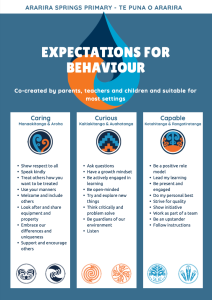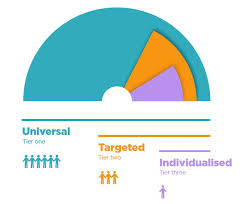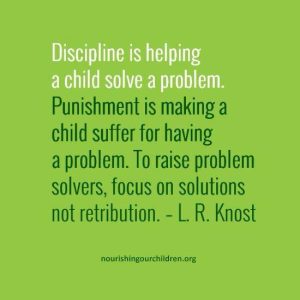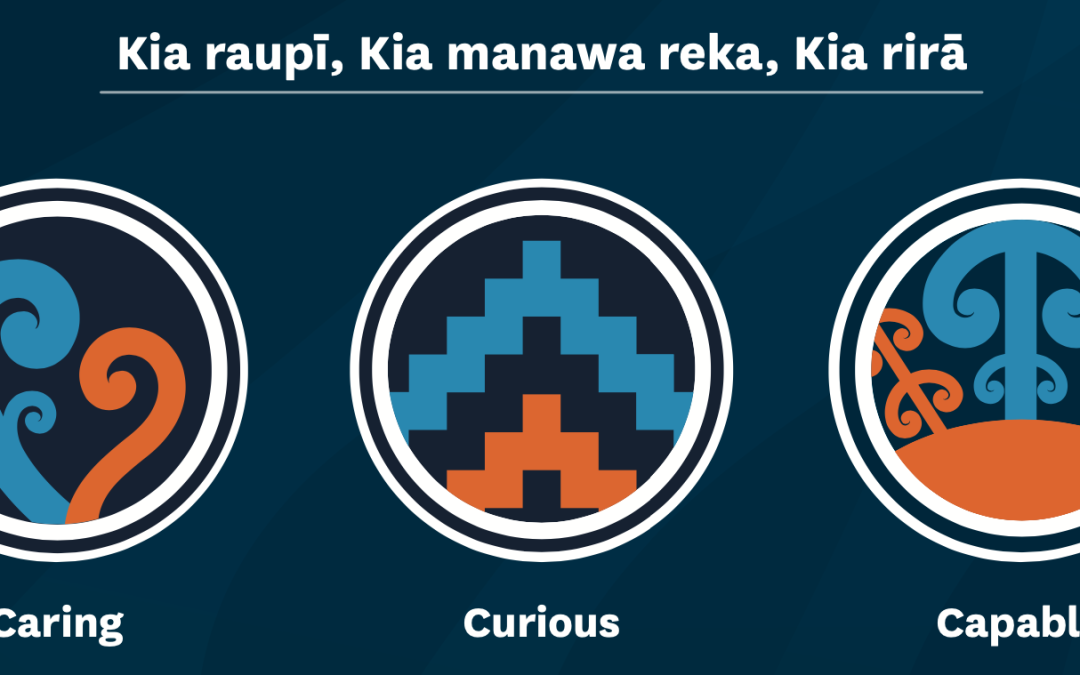The Three Cs of Behaviour at Ararira
Ararira is a growing school with teachers and learners joining us as they move into the Lincoln community. This means that we are always welcoming children and helping them adjust to life at a new school. Like everything we do at Ararira we try to anchor it to the school’s values. So we are trying to teach children to behave in ways that are caring, curious and capable.
In 2021 staff parents and students workshopped expectations for behaviour across a range of settings. We all agreed that most of the time we would expect the following;

Over the term break, teachers have taken part in professional learning about behaviour. This involved the need to be explicit in setting expectations for behaviour and routines in the classroom. Teams designed ways in which these many routines were to be taught and committed to having common expectations across the team. For most children, the daily programme is enough to reinforce this teaching. Children respond to positive reinforcement and affirmation for doing the right thing.

Some children find behaviour a struggle and more teaching and systems are required. Teachers might employ incentives to change the behaviour of a group for a period of time. Other times approaches are developed specifically for a child. Like any area of learning, children get an intervention that they need and that might not be the same as everyone else. Classroom interventions include;
- programmes to foster positive relationships
- teaching social skills
- proximity
- redirection
- choices
- restorative practice conferences
- 1:1 time with adults
- re-teaching of expected behaviours
- regular brain breaks in class
- buddy class support
- tuakana-teina programmes.
School-Wide Systems
During break times we have four teachers out on Connect. They rove and connect with learners and have conversations to support behaviour or redirect when necessary. If there is an incident in the playground a behaviour slip is filled out and left for one of the senior leadership team to consider for follow up. Data from these incidents are recorded in case patterns emerge. If an incident needs follow up then a teacher visits the class and talks to the child concerned. There is a range of consequences that are dependent on the type of behaviour. Sometimes parents will be informed, this is usually if there has been a pattern or if the incident is of a more serious nature. For most children conversations based around our mantra of mess up, fess up, fix up and move on are enough.

Sometimes a deeper conversation is required and all staff have had training in the use of these tools. However, more serious incidents are left to the leadership team to unpack as there may still be a lot of emotion and it is important to wait until everyone is calm. These conversations follow the format of;
- Tell the story – What happened? What were you thinking when doing that?
- Explore the harm – Who has been affected by this behaviour? In what ways? How has your behaviour affected learning today? How fair is this on others?
- Repair the harm – How can you go about fixing this? What exactly are you sorry for? How will this support others’ learning? How will it support your learning?
- Reach an agreement – What do you need to do from now on? How can we support you to do this?
- Plan follow-up – When would be a good time to check in with you to see you’re doing what we agreed? What support do you need to make sure this doesn’t happen again?
However, for some children when behaviour is more serious or repeated follow up is required. If the behaviour was serious enough to be deemed gross misconduct or continual disobedience that needed to be addressed, then we can stand down, suspend or ultimately exclude a child. These measures involve the Ministry of Education and are not used very often.
Each Board meeting the Board receives anonymous data about playground incidents and the follow up required. In addition, the senior leadership team keeps a register and we monitor closely children needing more support with behaviour, similarly, we monitor children for learning and pastoral needs.
If you have any concerns about behaviour at Ararira, in the first instance talk to your child’s ako teacher. By all means, talk to friends to get advice but think about whether your conversation is part of the problem or the solution. You could send an email or ask for the opportunity to pop in to discuss any issues that may be happening. Giving teachers a heads up in the email gives them time to observe children and gather information to support the discussion. If your issue is not resolved your next step is the team leader and then Donna as Deputy Principal or Claire the Principal.


Trackbacks/Pingbacks